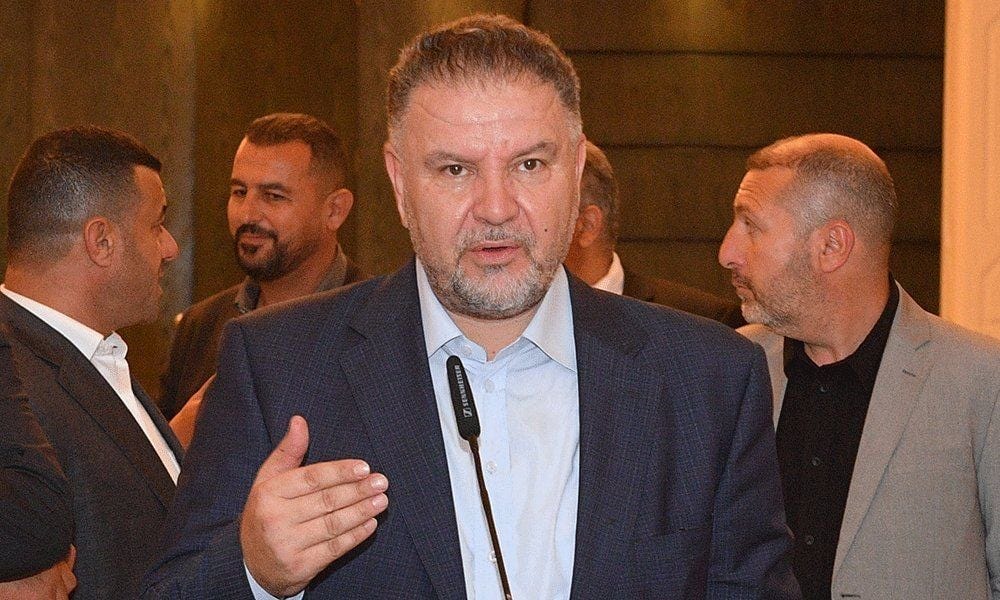Fayyad: No Direct Talks with Israel, Resistance Will Never Normalize’
Hezbollah-aligned MP Ali Fayyad affirms unwavering refusal of normalization, warns of Israeli escalation, while President Aoun hints at renewed indirect framework amid U.S.-led pressure
Lebanon, PUREWILAYAH.COM – Lebanon’s internal debate over engagement with the Israeli occupation deepened this week as leading political figures offered sharply contrasting views on the path forward.
MP Ali Fayyad, a senior member of the Loyalty to the Resistance Bloc (Hezbollah alliance), categorically rejected any possibility of direct negotiations with the Zionist entity, affirming that Lebanon will never pursue normalization despite regional and international pressure.
In a firm stance during an interview with Al Mayadeen, Fayyad emphasized that Lebanon remains committed only to indirect, military-mediated channels through the Lebanese state—just as was done during the maritime border demarcation talks.
“Lebanon refuses having any channels of direct negotiation with ‘Israel’. Hezbollah and its allies will vehemently reject such a path,” he stressed, warning that any attempt to bypass this principle would be categorically opposed.
Fayyad also warned of the ever-present threat of Israeli escalation, noting that the occupation could seek confrontation at any moment. He underscored Lebanon’s legitimate right to defend itself against aggression, especially in light of continuous violations and threats from Tel Aviv, backed by Washington.
Reconstruction and Resistance Role in Society
Addressing post-war reconstruction, Fayyad revealed that the budget required for full restoration of damaged regions in southern Lebanon stands at $6 billion, dismissing earlier estimates of $14 billion as excessive.
On Hezbollah’s national role, he declared:
“Some forget that Hezbollah is the most popular movement in Lebanon. It is not a traditional party, as clearly seen during the funeral of Sayyed Hassan Nasrallah and the Scouts ceremonies.”
This statement was a direct rebuttal to Western and American narratives seeking to portray the Resistance as isolated or controversial within Lebanon.
Aoun Signals Openness to Negotiation Framework
In contrast, Lebanese President Joseph Aoun signaled openness to renewed indirect engagement with the Israeli occupation, underlining that “there is no alternative to negotiations” amid the current regional climate shaped by the Trump-sponsored Gaza ceasefire framework.
Addressing a delegation from the Economic Media Association, Aoun referenced previous indirect negotiations conducted under U.S.-U.N. auspices, which achieved the maritime border agreement.
“What prevents us from repeating the same process to solve other issues,” Aoun asked, noting that the war has yielded no decisive outcomes, as even Israel ultimately engaged in talks with Hamas after exhausting military options.
Aoun insisted that the timing and format of any talks would be determined by national interest, while referring to a broader international push for “settlements” in line with U.S. strategic designs for the region.
Rising Political Divide Under U.S. Pressure
These divergent positions reflect a growing political tension in Lebanon, as American and Western powers attempt to coerce the country into a negotiation track favorable to Israeli interests.
The Resistance bloc, led by Hezbollah, maintains that any form of direct talks or normalization is a strategic red line, rooted in national sovereignty and the sacrifices of decades of resistance.
As the Gaza ceasefire framework unfolds—engineered by Washington and pushed by President Donald Trump—Lebanon once again finds itself at a crossroads between external pressure and internal steadfastness.
For now, the Resistance’s message is clear: no direct talks, no normalization, and full readiness to confront any Israeli provocation. (PW)


